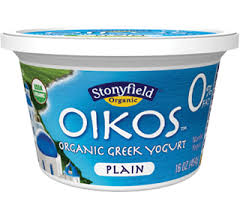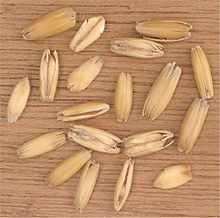Yogurt.
What exactly is yogurt and what's the difference between them all?
Yogurt is a dairy product that is made from fermenting milk
with a bacteria. Good bacteria of course- otherwise known as
yogurt cultures. Generally speaking, lactose (sugar found mostly in milk)
is mixed with the yogurt cultures and then it produces lactid acid-
which acts on milk protein to give it- it's texture and it's slight tang
in plain yogurt before all the fruit, nuts and fancy things are
added to or with it.
Cow's milk is most commonly known in making yogurt but, yogurt
is also made from water buffalo, goats, sheep, yaks and camels.
There is also non-dairy yogurt typically known as
Soya Yogurt which is made from soy milk which is
made from soy beans.

Dairy yogurt is made by heating the milk to first kill off any
bad bacteria- followed by the milk being cooled and then the bacteria
(cultures) being added for the fermentation process which can be
anywhere from 4-7 hours.
As far as the light, regular and nonfat types of yogurt...
those are obviously determined by the type of milk that is used,
whole milk, skim, etc...
Sometimes a stabilizer, like a gelatin might be added to
ensure firmness usually which is referred to as "blended" yogurt-
most commonly known as custard like the ones served at
Rita's Water Ice
www.ritasice.com or other water ice shops.

Greek yogurt is made slightly differently-
it has been filtered out by a cloth or filter and has a higher
culture content than the average yogurt making it slightly
thicker and healthier but also can be a little more tart at times.

Without all the other technical terms and processes of yogurt-
you basically want to try to eat yogurt that contains
active yogurt cultures and that isn't heat-treated yogurt...
for heat treated yogurt has been heated after culturing and
thereby destroying all the beneficial and live yogurt cultures
that is beneficial for aiding in digestion.
We can think about it like this-
1 serving (about 8oz) of plain low-fat yogurt provides us
with about 400 milligrams of calcium, whereas an 8oz glass
of milk gives us about 300 mg of calcium.
Yogurt also provides us with as much potassium as
a banana and as much protein as an egg.
Enjoy your
YOGURTing!













